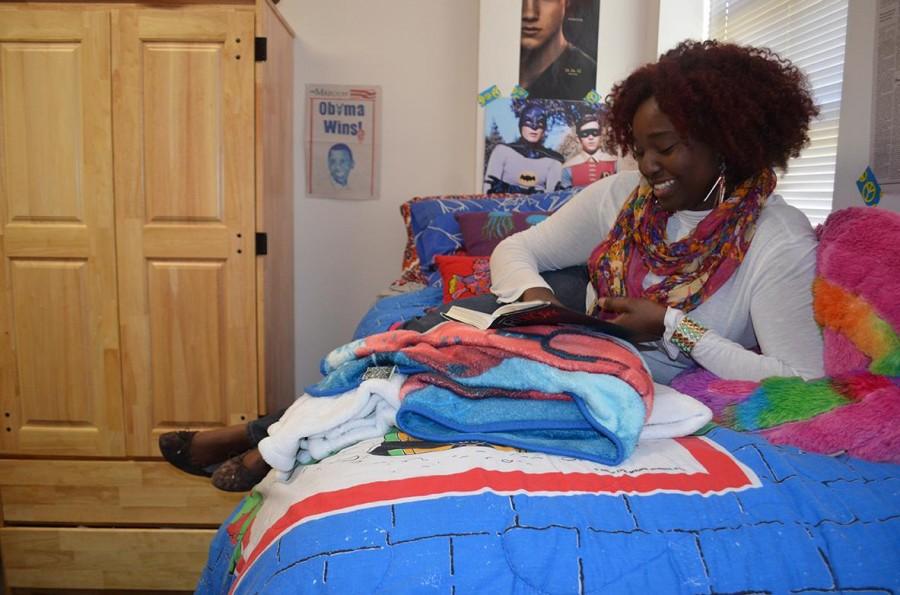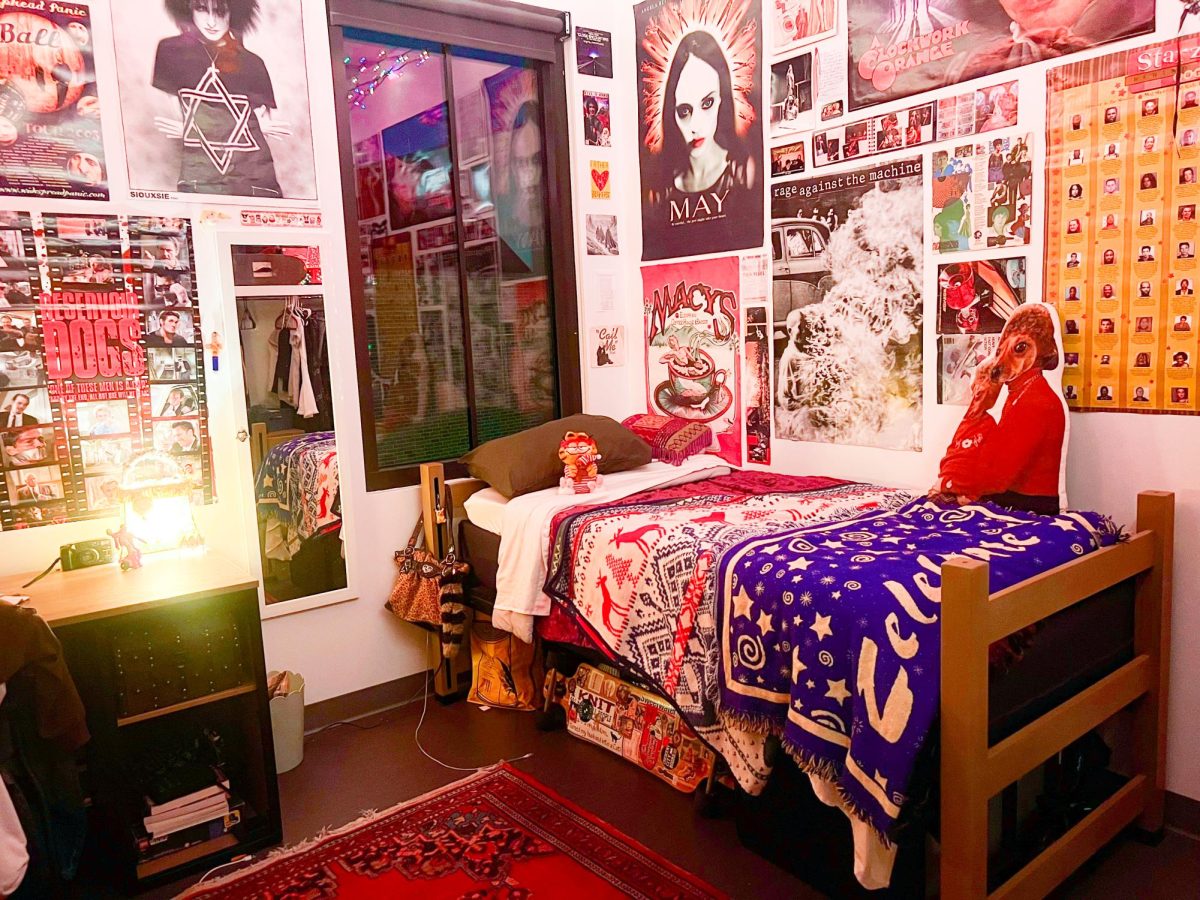“I once walked in on my roommate and her boyfriend getting it on,” Mahoganee Medlock, music industry senior, said while discussing the worst and the best of life in a residence hall.
“I don’t think they saw me because I only cracked the door and saw a leg, an arm and I heard noises, so I left quickly.”
Medlock laughs now, but she acknowledges that at the time, the experience was not very amusing.
“I didn’t go back in there for half the day. I was tired and wanted to take a nap, but I just had to leave,” she said.
Living in residence halls exposes students to different mindsets and lifestyles which, as she said, help people learn how to relate to others.
“Maybe you’ve been living by yourself and had your own room for your whole life. Then you show up to college and you’re like ‘I have to share a room with somebody else? Are you kidding me?’ You really have to learn to compromise,” Medlock said.
Like Medlock, Harlan Cohen, New York Times bestseller and author of “The Naked Roommate”, agrees that life in residence halls teaches people how to find a middle ground in relationships and also provides skills to handle future relationships.
“The experience teaches you to deal with naturally uncomfortable situations. Our whole lives, we’re told to not engage with strangers, and all of a sudden now we have to live with one,” he said. “This helps you learn more about yourself and other people, which will help you in workplace situations and in learning to be friends with your significant other.”
Cohen suggests students learn to communicate when they encounter problems, remembering to consider their own behavior.
“Communication is key to stop the deterioration of relationships,” he said. “To address any conflict, people need to learn to talk within 24 to 48 hours. Also, if you think you have a roommate from hell, ask yourself the question ‘Am I a roommate from hell?'”
Area Director of Carrollton Hall Katie Cannella also said that communication is integral to having a good experience while living on campus.
“Living in residence halls is an opportunity to interact and have better interpersonal skills in all capacities of life,” she said. “It teaches you to be ok with conflict, to be willing to discuss and admit fault or be humble enough to say sorry, even if it’s not your fault. It teaches patience and flexibility.”
Cannella said living on campus is a positive and educational experience for most people, but not for all.
“People who are invested in living with one another learn to compromise. For most people, it’s a positive experience, but everyone is different,” she said.
For students like Theresa Bul,,,lington, A’12, the benefits of living on campus also became the root of her dissatisfactions.
“My biggest problem was that I got sucked into the on-campus black hole. I worked on campus, I dined on campus, I slept and hung out with my friends on campus and I went to class on campus,” she said. “I felt like I was never able to leave or to see New Orleans.”
As many other students, Bullington decided she needed to move off campus, which led her to appreciate independence but also to face new difficulties.
“Living off campus was amazing in some ways and absolutely dreadful in other ways. I loved walking or biking to class in the mornings, having my own private and personal space to live in, living in a neighborhood, getting to know my neighbors and feeling like part of the community,” she said. “My experience off-campus, however, was tarnished by awful landlords and the archaic leasing and tenants’ rights laws in the city.”
Bullington recalls a particular event that made her off-campus experience difficult.
“I actually was unofficially evicted from my first house after my roommate literally fell through the floor. Her foot went through it up to her knee,” she said. “When we sent an email to our landlord asking that it and other problems with the house be fixed, she asked us to move out.”
Unable to find a lease for the last four months she had left in college and in search of less worries, she moved back into the residence halls.
“The residence halls are something of a safety net. You don’t have the distractions of rent and utility bills and transportation issues to prevent you from doing your best in your academics,” she said.
Cannella also agrees that living on campus makes it easier for students to excel in their academics, adding that Residential Life staff is available to help students.
“There’s easy access to laptops and other resources at the library at almost any time,” she said. “Also, I can sit down with a student to talk for 30 minutes while their landlord won’t do this.”
According to Cannella, students can feel safe taking advantage of these on-campus resources late into the night, given that they’re also provided with safety.
“You can feel safe walking around campus at night. When you live off-campus you don’t know who lives in your building or who has access to it. Here, an area director is on-call, resident assistants are doing rounds, there are cameras in all lobbies and desk assistants pay attention to who comes into the building,” she said.
Safety aside, Cannella also said that students can easily participate in on-campus events and that this is beneficial for the rest of their success in college.
“Students have easier access to events and programs,” she said. “The more involved you are, the more likely you are to succeed at university. You build a support system, people around you who can help you.”
Similarly, Cohen said living on campus helps integrate students, and he notes that the way students view their on-campus life is what ultimately defines their experience.
“In the center of all activity, a lot of students are afraid to be involved, so being on campus helps you get out and do things,” he said. “You could come up with a million reasons not to live in a residence hall but it all comes down to your perception.”
In Medlock’s perception, she still wishes she moved off-campus at some point. Yet in retrospect, she is also appreciative of her on-campus experience.
“If I had to do things again, I would’ve moved off-campus my junior year. If you’re not on your own, you can’t really learn the life skills you need for life after graduation,” she said. “But living on campus, you’re in the know, you really get the college lifestyle.”








